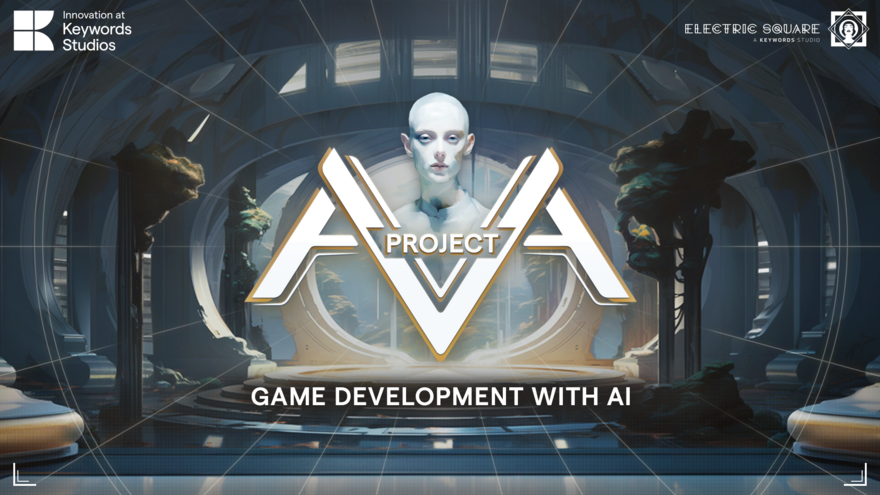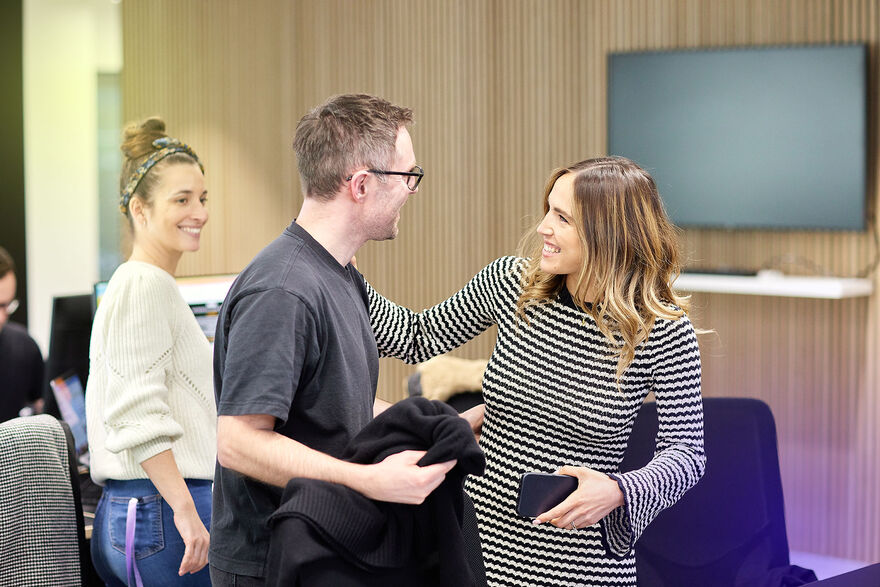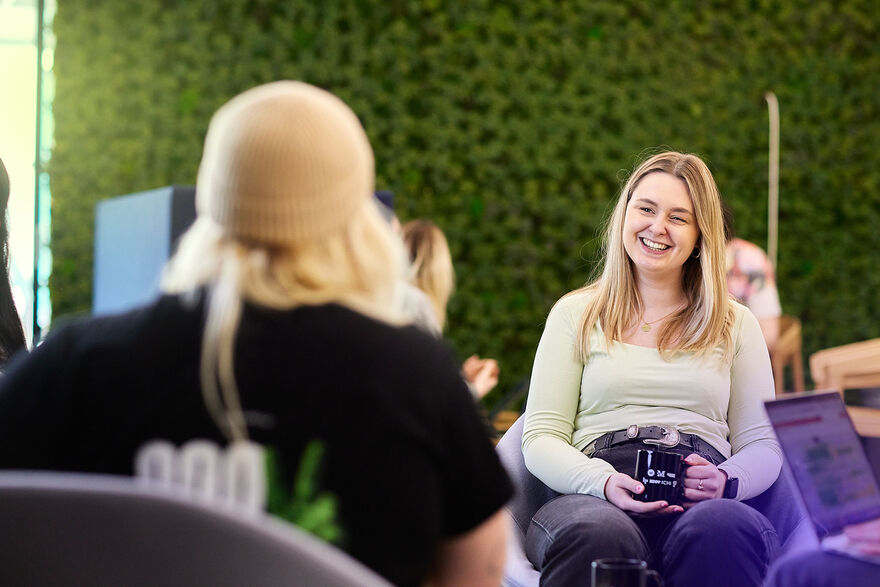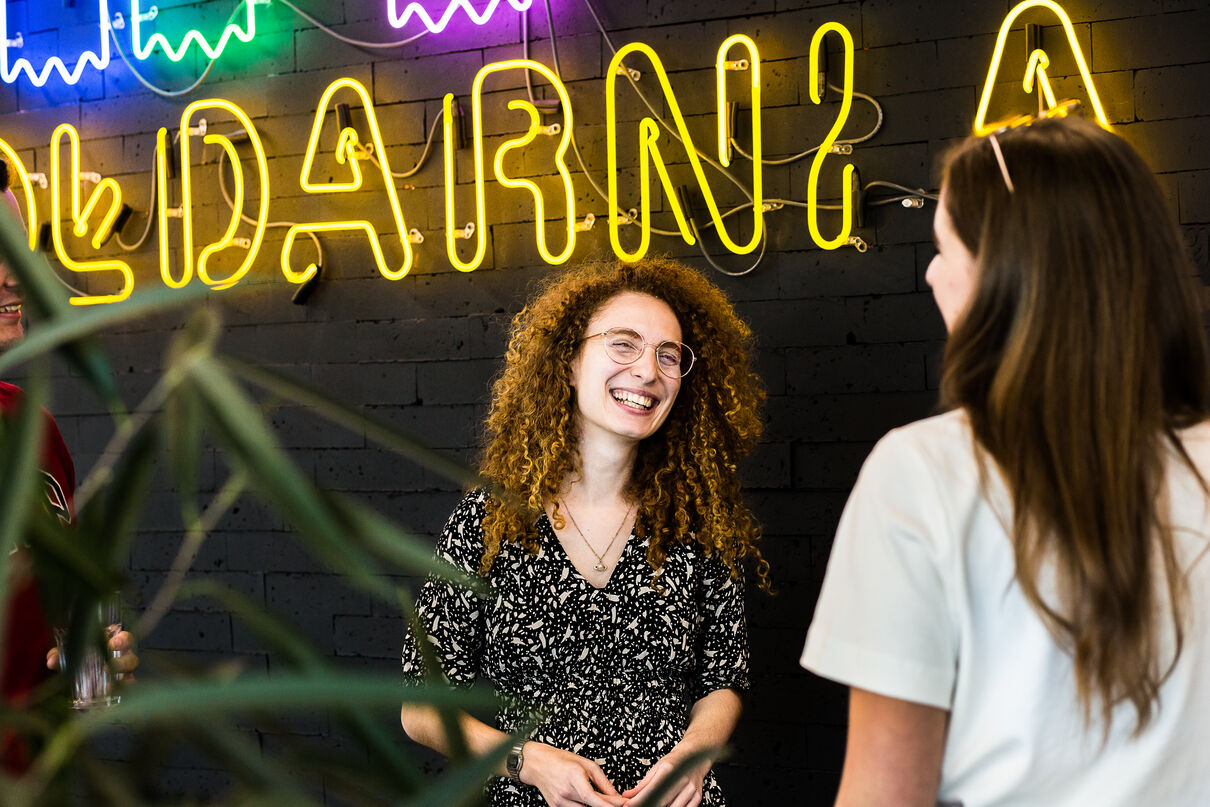Meet the Localization Team at Keywords Studios in Mexico
"To have the opportunity to work in an area I love and use my natural passion for games to improve players’ experiences is an amazing feeling"
We recently sat down with Diana Medellin and Monica Reynal to discuss their respective journeys into Localization, changes in the gaming industry, and what it’s like working at Keywords Studios in Mexico.
Diana has been working at Keywords for over 4 years, starting initially as Project Manager before moving into her current role as Localization Lead for Keywords in Mexico.
Monica has been managing the Localization process in Mexico since 2018, ensuring the smooth delivery of resources and assets for our clients.
Here’s what they had to say.
What inspired your journey into the Localization space in gaming?
Diana: I’ve been a passionate gamer with a love for languages since I was very young. While video games gave me great times and helped me through a lot in life, it was the fact that people were able to enjoy the experience in their own language I found most comforting and thrilling. So I was incredibly lucky to be given the opportunity to combine these two passions and get the chance to play a small part in the experience of millions of players worldwide.
Monica: Video games have been a huge part of my life since I was a kid, mainly thanks to my older brothers. I used to dream about growing up and being paid to do something that I love, but didn’t know it was possible to actually do so!
Describe what a day at Keywords in Mexico looks like for you.
Monica: Insert ‘this is fine’ meme here! But all jokes aside, the day starts with updates from our many clients. Once I’ve prioritised tasks based on those, it’s time to assemble my team, all of whom are experts in diverse topics like shooters, RPG, sports, marketing etc. I brief them fully on the task at hand and detail any further specifications like character limits or profile changes. All of this is done with the ultimate purpose of delivering a premium-quality final product.
Diana: There’s a lot to get through! Communicating with clients, project managers and translators as well as organising schedules, budgets, teams and workflows … you really need to multitask. But it’s always a pleasure to meet people that are just as passionate about video games as you, and contribute to titles and franchises that you love. Every day brings a little joy, and when I get home I always find time to play video games before bed.
What are some of the challenges that come with leading and managing the Localization process?
Diana: Since there are a lot of things to track and keep an eye on there are always new challenges. Deadlines can be tricky to manage at times, so it’s important to have a committed team to meet them. Finding the right people and maintaining a constant flow of communication between everyone is key.
Monica: I think one of the biggest challenges is managing people. Everyone is different and every situation is different. Empathy is an essential quality.
How has Localization for games evolved since you started?
Monica: In my own experience, localization has evolved hugely in terms of diversity and inclusion, and it’s great that everyone can be represented and feel part of this big community.
Diana: We’ve come a long way in terms of specialised tool development, and now have a lot of incredibly useful software to track quality and maintain glossaries and term-bases. Also the CAT Tools and Machine Translation AIs are becoming more and more specialised, which increases our productivity on projects that are becoming increasingly ambitious by the year.
The video games industry worldwide is placing increased value on Diversity, Equity, Inclusion & Belonging. What role can Keywords play in making progress in this area?
Diana: I think the nature of the global endeavour nature of Keywords’ endeavours, especially in localization where pretty much everything is about diversity and inclusion, means the company is going to naturally keep improving in this area. The gaming industry will always be in need of passionate, talented people from all walks of life; people that can share their experiences, values and diverse backgrounds and bring meaningful and relatable gaming experience to players around the world.
What do you like best about working for Keywords Studios?
Monica: The camaraderie with my co-workers.
Diana: To have the opportunity to work in an area I love and use my natural passion for games to improve players’ experiences is an amazing feeling. I’d also say that playing a game and recognising the contribution my hard work has made is something that fills me with pride, but at the same time is really humbling as it’s only possible thanks to the combined efforts of hundreds of Keywords Colleagues around the world.
And finally, what advice would you give to someone considering a career in Localization or gaming as a whole?
Diana: First of all, really believe it’s possible! There are so many opportunities and avenues available to you because this is an industry that is constantly growing.
On the localization side of things, you can pick from many different aspects of the process, such as translation, editing or project management. There are also positions in QA such as localization engineering and tool development. Localization is a process with many roles and responsibilities throughout its different stages, so find what interests you the most and dive in! The video games industry is huge and has a spot for everyone.
Monica: Follow your dreams – you never know when they could come true!







